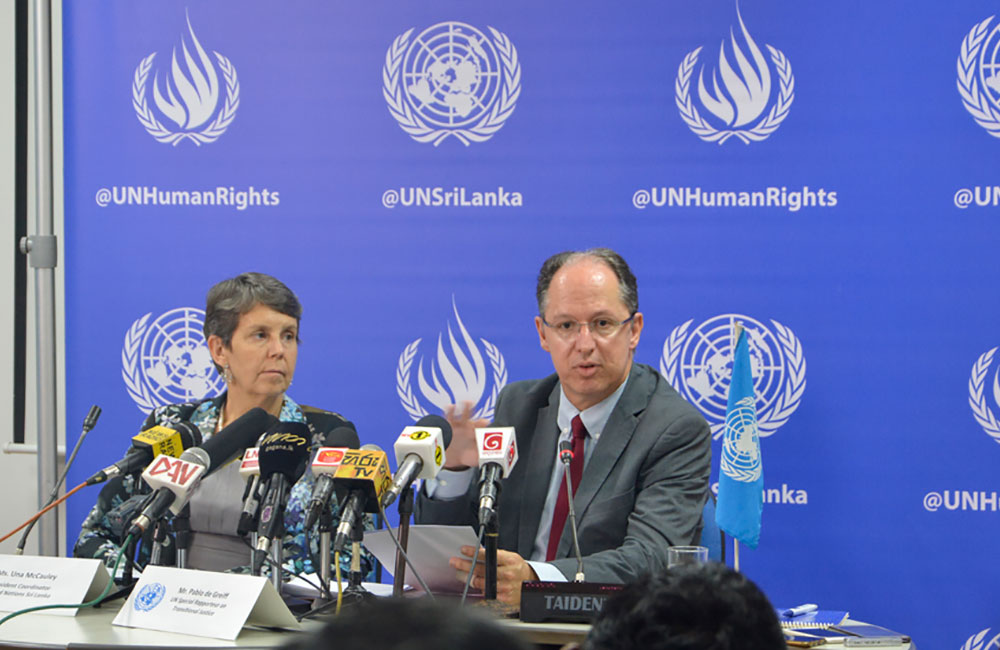Sri Lanka has come under criticism on transitional justice, in a report submitted to the UN Human Rights Council (UNHRC).
The former Special Rapporteur on the promotion of truth, justice, reparation and guarantees of non-recurrence Pablo de Greiff has noted in his report that nothing has hindered the transitional justice programme in Sri Lanka more than lack of commitment on the part of the Government.
The report has been submitted to the UNHRC for its September session which begins on Monday.
Pablo de Greiff noted that the Sri Lankan Government was not only slow in terms of design and implementation of the transitional justice system, but also wavered in its messaging and ultimately failed up to this point to take full ownership of the process.
In his capacity as Special Rapporteur on the promotion of truth, justice, reparation and guarantees of non-recurrence, Pablo de Greiff visited Sri Lanka from 10 to 23 October 2017.
He reviewed the progress made by the Government in the areas of truth-seeking, justice, reparation and guarantees of non-recurrence and to advise the authorities and Sri Lankan society on efforts to provide redress for past massive gross violations and abuses.
The Special Rapporteur had previously conducted four other trips to Sri Lanka, at the invitation of the Government, to provide advisory services, during the course of whichhe was able to follow the developments since March 2015.
In his report the former Special Rapporteur notes that Sri Lanka has a long history of partial compliance with its human rights obligations, which is not actually a form of compliance but, ultimately, one of non-compliance.
“Breaking out of this pattern means making unambiguous commitments, expressed both in words and in deeds, starting with the President and the Prime Minister, and making the case for a comprehensive human rights-based and gender-sensitive redress and prevention policy that integrates measures to satisfy victims’ rights to truth, justice, reparation and guarantees of non-recurrence,” he said.
He also noted the tendency to discuss transitional justice in Sri Lanka as if it concerned only victims of the conflict with the Tamil Tigers and, in turn, as if it affected only the Sinhala and Tamil communities. Doing so leaves out the Muslim and other religious communities that have been affected by the conflict.
“One need only recall the expulsion of Muslims from Jaffna in 1990, from land that had been theirs for generations, and the lukewarm embrace they received from the majority community,” he said.
He repeated calls to repeal the Prevention of Terrorism Act and promptly replace it with new counter-terrorism legislation that adheres to international best practices.
He said the Government should also promptly deal with long-standing cases pending under the Act and put in place a procedure to review convictions handed down under the Act that were based solely on the confession of the accused.

Leave your comments
Login to post a comment
Post comment as a guest